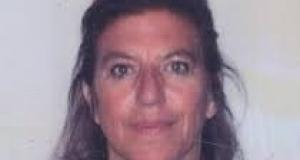
Notizie
FALL SEMESTER 2025-2026
I. The Words of History course will begin on 2025 October 7th, with the following schedule
Tuesday, h. 12-14, Classroom 203 (Marco Polo Building)
Friday, h. 14-16, Classroom 203 (Marco Polo Building)
You are kindly invited to sign up for Google Classroom at the following link: https://classroom.google.com/c/ODA5MDc0OTM3NDQ1?cjc=wrznhh77
Students unable to attend in person due to visa delays may participate in online classes.
new!! You can find the updated reading list for the WoH final exam on Google Classroom. Please note that the final exam is a written test only.
Exams for all courses in the 2025-26 academic year will be held on the following dates:
Winter session:
January 12
January 26
February 16
Summer session:
June 10
June 26
July 10
Fall session
September 14
September 28
Special exam sessions
April 13
November 9
--------------------------------------------------------------------------
II SEMESTRE 2025-26
SPRING SEMESTER 2025-25
Science and Knowledge in a Global Historical Perspective 2025-26 course will be held in the Second Semester
Please refer to the 'Insegnamenti' section of this site for the syllabus and exam format.
Il corso di Storia della scienza per la Magistrale di Scienze Storiche 2024-25 si terrà nel secondo semestre
Per informazioni sui programmi e le modalità di esame, consulta la voce 'Insegnamenti' in questa pagina.
-------------------------------------------------------------------------------
S&K Instructions for the approaching exams
The S&K exam will be administered as follows:
1. An in-class test on the day of the exam (10 multiple choice questions plus 2 open-ended questions) on the mandatory books
James McClellan and Harold Dorn, Science and Technology in World History, Johns Hopkins University Press, 2015 (only parts 2 and 3)
Steven Shapin, The Scientific Revolution, Chicago, University of Chicago Press, c1996 (or other editions)
2. An oral exam of approximately 15 minutes - the day after the in-class test - on one of the following monographs of your choice:
Colonial Botany: “Science, Commerce, and Politics in the Early Modern World”, edited by Londa Schiebinger and Claudia Swan, Philadelphia, University of Pennsylvania Press, c2005
‘Merchants & Marvels: commerce, science and art in early modern Europe’, edited by Pamela H. Smith & Paula Findlen, New York, NY : Routledge, c2002
Kapil Raj, ‘Relocating Modern Science: Circulation and Construction of Knowledge in South Asia and Europe, 1650–1900.’, Basingstoke: Palgrave Macmillan 2007
Londa Schiebinger, “Plants and empire : colonial bioprospecting in the atlantic world”, Cambridge MS : Harvard University press, ; London, 2004
Pablo F. Gómez, “The experiential Caribbean : creating knowledge and healing in the early modern Atlantic”, Chapel Hill : The University of North Carolina Press, 2017
-------------------------
Further information and materials at the following GoogleClassroom link: https://classroom.google.com/c/MjMxNjMxNDY2ODha?cjc=l6l63wk
------------------------------------------------------------------------------------------
Office hours: Tuesday, h. 15-18. SARAS Dept., Lettere Building, Hall Storia Moderna, room 2 (preferably by appointment)
Ricevimento: Martedì h. 15-18 Dipartimento SARAS, 3 piano, corridoio Storia Moderna, stanza 2 (è preferibile scrivere prima per appuntamento)
Calendario esami a.a. 2024-25 (valido per tutti gli insegnamenti)
Sessione estiva
13 Giugno 2025
23 Giugno 2025
18 Luglio 2025
Appelli straordinari*
5 maggio 2025
10 novembre 2025
Sessione autunnale
11-09-2025
29-09-2025
Sessione invernale 2024-25
12-01-2026
09-02-2026
23-02-2026
*Le sessioni straordinarie sono riservate agli studenti fuori corso, ripetenti, lavoratori, portatori di disabilità, alle studentesse madri e agli studenti padri con figlio/i di età inferiore a tre anni, nonché alle studentesse in stato di gravidanza, previa presentazione di autocertificazione (https://web.uniroma1.it/lettere/sites/default/files/download/modello-aut...).
Orari di ricevimento
Martedì, 15.00 - Lettere e Filosofia - 3° piano - Corridoio di Storia Moderna e Contemporanea - stanza 2. Si consiglia di scrivere per un appuntamento
Insegnamenti
| Codice insegnamento | Insegnamento | Anno | Semestre | Lingua | Corso | Codice corso | Curriculum |
|---|---|---|---|---|---|---|---|
| 99795 | STORIA DELLA SCIENZA | 1º | 2º | ITA | Scienze storiche. Medioevo, età moderna, età contemporanea | 33557 | Storia moderna e contemporanea (Percorso valido anche ai fini del rilascio del doppio titolo italo-francese) |
| 10620443 | Words of History: A Global Exploration | 1º | 1º | ENG | Global Humanities - Studi umanistici globali | 33537 | Curriculum unico |
| 99795 | STORIA DELLA SCIENZA | 1º | 2º | ITA | Scienze storiche. Medioevo, età moderna, età contemporanea | 33557 | Storia moderna e contemporanea (Percorso valido anche ai fini del rilascio del doppio titolo italo-francese) |
| 99795 | STORIA DELLA SCIENZA | 1º | 2º | ITA | Scienze storiche. Medioevo, età moderna, età contemporanea | 33557 | Storia Medievale e Paleografia (Percorso valido anche ai fini del rilascio del doppio titolo italo-francese) |
| 10595502 | SCIENCE AND KNOWLEDGE IN A GLOBAL HISTORICAL PERSPECTIVE | 2º | 2º | ENG | Global Humanities - Studi umanistici globali | 33537 | Curriculum unico |
| 10595406 | GLOBAL HISTORY LAB | 2º | 1º | ENG | Global Humanities - Studi umanistici globali | 33537 | Curriculum unico |
